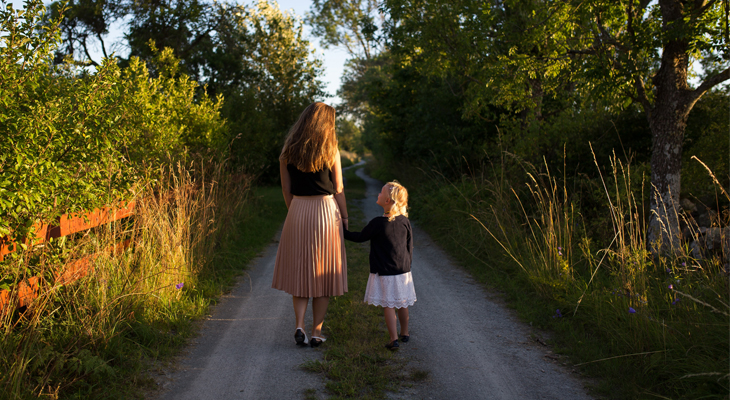
Just as our children don’t arrive as blank slates, we come to parenting with our own unique histories. Let’s be honest—even the best childhood is not completely free of hardship.
When I think back to my childhood, I’m a bit stunned to realize that even those in my small crowd of friends had their share of traumas with a capital “T”: the death of a parent, a mother with cancer, parental divorce, teen pregnancy, substance abuse, depression, suicidal thoughts, eating disorders, bullying, and chronic anxiety are just some of the challenges that come to mind.
More common challenges (traumas with a little “t”) impact children as well. These include things such as children moving houses, dating and breaking up, and simply not feeling like they belong. A therapist friend shared that she sees many children for whom moving is a significant trauma. I find this comforting because moving from the city to a small town in late elementary school was very difficult for me. I lost my bearings for a long time.
ATTACHMENT AND YOUR FAMILY HISTORY
How my friends and I coped with our “big T” and “little t” traumas had a lot to do with our attachment to our parents. Those of us who had a secure attachment and whose parents provided a secure base probably weathered the hardest parts of childhood far better than our friends who didn’t have reliable support.
Some parents who decide to adopt or care for foster children have experienced severe challenges in their childhoods. Abuse, neglect, and adoption losses may be part of your own childhood story.
Think back to your childhood. How were you parented? Did you experience safety and consistency from caring, healthy parents? Did you know you were precious and loved?
Or were your parents distant, showing little emotion and affection? Did you seek assurance from other adults, like teachers? Were your friends your primary support and safe base?
Did you have parents who were inconsistent—sometimes affectionate and meeting your needs, while the next day ignoring you and leaving you to figure things out on your own? When you cried or were having a hard time, were you unsure which version of your parent would show up to help, if they did at all?
Did you have parents with addictions or mental health challenges?
The parenting we experienced continues to influence us into adulthood and in our own parenting. It gets even more interesting when we blend our attachment history with our partner’s. This may sound discouraging, but I have good news: We aren’t trapped in our childhood attachment patterns and styles.
YOUR LIFE NARRATIVE
What happened to us as children is not as important as how we’ve made sense of it as adults. We can’t change our experiences, but when we’re able to step back and view ourselves and our parents with compassion and insight, we form our “life narrative.”
You can form secure attachments with your spouse and children even if you didn’t have secure attachments with your parents.
Even more hopeful, this attachment healing doesn’t need to come from your relationship with a parent. A safe connection with another trustworthy, attuned adult can change your own attachment trajectory. A teacher, extended family member, pastor, or other person who becomes a safe base can make all the difference.
In addition to understanding attachment, we need to be aware of our triggers. Parents often identify their children’s triggers—the things that start a downward behavior spiral. We have triggers too, and sometimes they really get in the way of being the parents we want to be.
If disrespect makes your head feel like it might explode, explore it and be curious about your feelings. What about your child being disrespectful really bothers you? When you reflect on your childhood, do these feelings seem to make sense? Then learn to manage it with healthy coping skills. If you’re adopting or fostering older kids, you can nearly count on a lack of respect.
How about rejection by your child? Are you overly sensitive due to rejection in your own life? Do you find yourself desperate for your child’s acceptance? Or do you turn away because they don’t seem to want your love anyhow?
My child once told me I would never be able to help anyone because I wasn’t a good mom and I couldn’t help her. Her words went straight to my heart, pulling up feelings of failure and inadequacy.
My mind told me it was her pain talking, but my heart felt it deeply. This was a trigger for me. I wanted to back away, shield my heart, and protect myself. But those coping mechanisms don’t lead to connection. Knowing this was a trigger, acknowledging it, and reminding myself of the truth helped me stay present with my child.
There are so many things that can pull us back into our childhood experiences. Our traumas and attachments to our parents or other adults do not have to determine the parents we become. How we make sense of it can make all the difference.
***
Lisa Qualls is the mother of twelve children by birth and adoption, and sometimes more through foster care. She is the creator of the One Thankful Mom blog and a popular speaker at events for adoptive and foster parents. She mentors and encourages moms and dads using the methods developed by child expert Dr. Karyn Purvis.
Together with Dr. Purvis, Lisa wrote the Connected Parent to help moms and dads form secure attachments with children from all different backgrounds and restore a culture of love and respect within families.

Leave a Reply